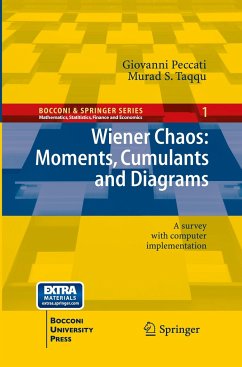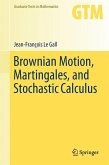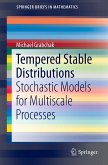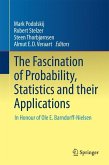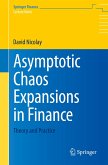The concept of Wiener chaos generalizes to an infinite-dimensional setting the properties of orthogonal polynomials associated with probability distributions on the real line. It plays a crucial role in modern probability theory, with applicationsranging from Malliavin calculus to stochastic differential equations and fromprobabilistic approximations to mathematical finance.This book is concerned with combinatorial structures arising from the studyof chaotic random variables related to infinitely divisible random measures. The combinatorial structures involved are those of partitions of finite sets, over which Möbius functions and related inversion formulae are defined. This combinatorial standpoint (which is originally due to Rota and Wallstrom) provides an ideal framework for diagrams, which are graphical devices used to compute moments and cumulants of random variables.Several applications are described, in particular, recent limit theorems for chaotic random variables. An Appendix presents a computer implementation in MATHEMATICA for many of the formulae.
From the book reviews:
"The objective of this book is to provide a detailed account of the combinatorial structures arising from the study of multiple stochastic integrals. ... the presentation is very clear, with all the necessary proofs and examples. The authors clearly accomplish the three goals they list in the introduction (to provide a unified approach to the diagram method using set partition, to give a combinatorial analysis of multiple stochastic integrals in the most general setting, and to discuss chaotic limit theorems)." (Sergey V. Lototsky, Mathematical Reviews, Issue 2012 d)
"The book provides a comprehensive and detailed introduction to the theory of multiple stochastic integrals and some results for the Wiener chaos representation of random variables. ... The book is recommended for anyone who needs a precise guidance to the theory." (Gábor Sz cs, Acta Scientiarum Mathematicarum (Szeged), Vol. 77 (3-4), 2011)
"The objective of this book is to provide a detailed account of the combinatorial structures arising from the study of multiple stochastic integrals. ... the presentation is very clear, with all the necessary proofs and examples. The authors clearly accomplish the three goals they list in the introduction (to provide a unified approach to the diagram method using set partition, to give a combinatorial analysis of multiple stochastic integrals in the most general setting, and to discuss chaotic limit theorems)." (Sergey V. Lototsky, Mathematical Reviews, Issue 2012 d)
"The book provides a comprehensive and detailed introduction to the theory of multiple stochastic integrals and some results for the Wiener chaos representation of random variables. ... The book is recommended for anyone who needs a precise guidance to the theory." (Gábor Sz cs, Acta Scientiarum Mathematicarum (Szeged), Vol. 77 (3-4), 2011)
From the reviews:
"The objective of this book is to provide a detailed account of the combinatorial structures arising from the study of multiple stochastic integrals. ... the presentation is very clear, with all the necessary proofs and examples. The authors clearly accomplish the three goals they list in the introduction (to provide a unified approach to the diagram method using set partition, to give a combinatorial analysis of multiple stochastic integrals in the most general setting, and to discuss chaotic limit theorems)." (Sergey V. Lototsky, Mathematical Reviews, Issue 2012 d)
"The objective of this book is to provide a detailed account of the combinatorial structures arising from the study of multiple stochastic integrals. ... the presentation is very clear, with all the necessary proofs and examples. The authors clearly accomplish the three goals they list in the introduction (to provide a unified approach to the diagram method using set partition, to give a combinatorial analysis of multiple stochastic integrals in the most general setting, and to discuss chaotic limit theorems)." (Sergey V. Lototsky, Mathematical Reviews, Issue 2012 d)

